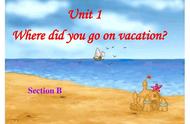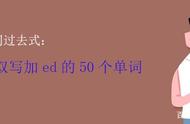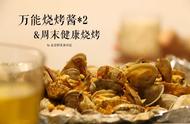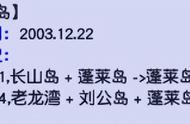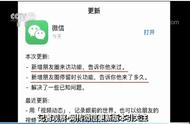
Unit7 Topic1
重点语法:掌握be动词的一般过去式。重点句型 :—Were you born in Hebei?
---Yes, I was./ No, I wasn’t.
—When was your daughter born?
—She was born on October 22nd, 1996.
What's the shape of your present?
What does it look like?
How long/wide is it?
What do we use it for?
We use it to study English.
重点讲解:1.英语中日期可以有两种表达法:
(1)月日,年。May 1st,2008
(2)日月,年。1st May,2008
2.plan to do sth.计划做某事
plan for sth.某事订计划
3.基数词变序数词的规律:
基变序,有规律,五/十二ve用f替再加th;
一二三,特殊记,整几十y变为ie再加th;
八去t九去e,然后再加th;
若是遇到几十几,只改个位就可以。
4.表示确切“几百”时,hundred后面不加“s”,但表示不确定数目的“数以百计”时,hundred后面应加“s”,用“hundreds of”表示。
three hundred students三百名学生
hundreds of students上百名学生
5.英语中表达物体的长、宽、高,先说数字,再说单位,最后加上一个表示长、宽、高的形容词。“.”读做“point”。
6.4米长 six point four meters long
6.What do we use it for?我们用它来做什么?
use sth. to do sth.用某物做某事.
= use sth. for doing sth.
语法讲解 :be动词的一般过去时1. be动词的一般过去时,表示过去存在的状态。 My brother was at school yesterday.
2. be动词的过去式为was/were,其否定式为was not/wasn’t和were not/weren’t.
3. 一般疑问句以及简略回答:
—Were you born in July,1999?
—Yes, I was./No,I wasn’t.
Topic2重点语法掌握情态动词can/can’t,could/couldn’t的用法。
重点句型—Can/Could you dance?
—Yes, I can/could. No, I can’t/couldn’t.
—What can you do?
—I can speak English.
He can’t sing English songs.
重点讲解:
1.—Do you want to sing Chinese songs or English songs? —Chinese songs.
选择疑问句中,回答时只能选择一者作答,不能用“Yes”或“No”回答。
2.I’d like to take these flowers to the party. take sb./sth. to sw.带某人/某物去某地
巧辩异同 take与bring :take (从说话人处带到别处)带去,带走
bring (由别处带到说话人处)带来
3.一段时间 ago是表示过去的时间状语。 two years ago两年前
at the age of 在……岁的时候
4.be good at doing sth. = do well in doing sth.擅长做某事,在……方面做得好。
5.with one’s help = with the help of… 在……的帮助下
6.can和could的使用(1) can(could)“可以,同意,准许”表示请求,允许。could语气较can委婉。
(2) can“会,能”,表示能力,could表示过去的能力。
Topic3重点语法行为动词的一般过去时及其回答。
重点句型—Did you sing a song at the party?
—Yes, I did/No, I didn’t.
I missed the chair and fell down.
How could you lie to me?
Kangkang made a silent wish and them he blew the candles out in one breath.
重点讲解1.Did Kangkang enjoy himself?
康康玩得开心吗?
Enjoy是及物动词,后接名词,代词或是动名词,意为“喜爱,欣赏,享受……的乐趣。”
enjoy oneself = have a good/great time
玩得愉快
enjoy doning sth.
喜欢做某事
巧辩异同 like, love与enjoy(1)like喜欢(程度较弱)like doing/to do
(2) love热爱(程度较强)love doing/to do
(3)enjoy喜爱,欣赏,享受……的乐趣enjoy doing
2 .It’s your turn.该你了。
turn 是名词,意思是“轮流”,It’s one’s turn to do sth.轮到某人做某事。还可以做连系动词,意为“变成……”,后接形容词做表语。
3.反身代词oneself变化如下:
①第一二人称用形容词性物主代词 self(selves)
I→myself you→yourself(yourselves)
②第三人称用人称代词宾格 self(selves)
he→himself they→themselves
4.What happened to Michael at the party?聚会上迈克发生什么事情了?
happen to sb. 某人发生某事,to是介词 happen to do…碰巧干某事,to是不定式符号
语法讲解 :一般过去式一、一般过去式表示:
(1)过去存在的状态。
My father wat at work yesterday afternoon.
(2)过去某个时间发生的动作。
I got up at 6:30 yesterday.
(3)过去经常或反复发生的动作。
He always went to work by bus last year.
常用的时间状语:two days/months/years ago, last year, in those days, just now, in 2002等。
二、动词过去式的构成:
1. 规则动词①在动词后面直接加“ed”。play-played ②动词以“e”结尾加“d”。move-moved ③动词以辅音字母加y结尾改y为i加ed. study-studied ④动词为重读闭音节,双写词尾的辅音字母加ed. plan-planned stop-stopped
2. 不规则动词
am/is-was
are-were do-did (详情见书后不规则动词表)
三、行为动词一般过去时态陈述句变否定句和一般疑问句:
肯定句:I bought some books yesterday.
否定句: I didn’t buy any books yesterday.
一般疑问句:Did you buy any books yesterday?
Unit5—Unit7中出现的冠词用法1.弹乐器前要带定冠词the,而进行球类运动,刚不带the。play the guitar/piano play soccer/basketball
2.序数词,前面要用定冠词the。
on the second floor
3.三餐前面不用冠词。
have breakfast/lunch/supper
介词的用法1. 在几点常用介词at, 在星期几常用on。
在早上、下午、晚上常用in
在具体某是前,用介词on
在月份或年份前用介词in
在具体到某一天的早上/下午/晚上,用on
at seven o’clock;
on Sunday; in the morning.
2.在哪一层楼用介词on.
,